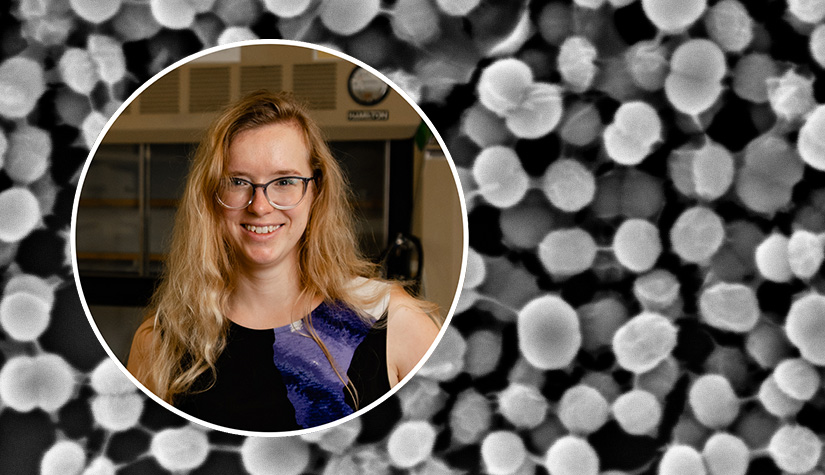
Image: Assistant Professor, Vivian Merk, Ph.D. Background image is from an Scanning Electron Micrograph of the cyanobacteria Microcystis Aeruginosa.
Vivian Merk, an assistant professor in chemistry and biochemistry, is investigating the cellular distribution of micronutrients in cyanobacteria that can enhance nitrogen fixation and biofuel production, and could help mitigate the adverse effects on Florida ecosystems and human health.
Merk explains, “Cyanobacteria, also called blue-green algae, are an ancient group of aquatic microbes. Some strains are capable of fixing nitrogen from the air (in other words they make their own fertilizer), which is a rare phenomenon in nature. Some cyanobacteria produce biofuels that can be used instead of conventional gasoline. A goal of our research is to investigate how trace metals, such as iron or molybdenum, support the fixation of nitrogen at the cellular level. Among other methods, we are planning to use synchrotron-based chemical imaging methods to map the distribution of trace metals across cyanobacteria cells.”
Part of the research includes investigating the cellular distribution of micronutrients in cyanobacteria to enhance nitrogen fixation and biofuel production. Merk states, “The research may aid the development of new catalysts for an energy-efficient production of ammonia and hydrogen. At present, the industrial conversion of nitrogen to ammonia consumes more than 1% of the global energy production. Knowledge on the micronutrient requirements of cyanobacteria is crucial to prevent Harmful Algal Blooms (HAB). This information may help policy makers mitigate the adverse effects on Florida ecosystems and human health.”